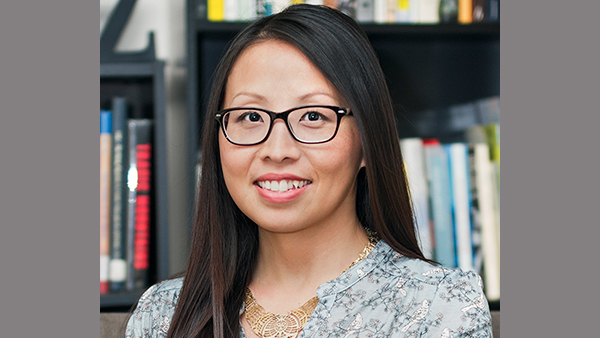|
The College of Arts and Humanities welcomes assistant professor Mai Der Vang to the Department of English and the Master of Fine Arts Program in Creative Writing this year.
Vang is the author of "Afterland," winner of the 2016 Walt Whitman Award from the Academy of American Poets, long-listed for the 2017 National Book Award in Poetry and a finalist for the 2018 Kate Tufts Discovery Award.
The recipient of a Lannan Literary Fellowship, Vang has served as a visiting writer at the School of the Art Institute of Chicago. Her poetry has appeared in Poetry, Tin House, and the American Poetry Review, among other journals and anthologies. Her essays have been published in The New York Times, The Washington Post and elsewhere.
Vang is a member of the Hmong American Writers’ Circle where she co-edited "How Do I Begin: A Hmong American Literary Anthology." A Kundiman fellow, she completed residencies at Civitella Ranieri and Hedgebrook. Born and raised in Fresno, she earned her bachelor's degree from the University of California, Berkeley and her MFA from Columbia University.
Meet Vang in a conversation with MFA communications specialist Jefferson Beavers as part of the College of Arts and Humanities blog series on new faces in the college.
What are you most looking forward to, teaching at Fresno State?
I’m excited about teaching poetry! I look forward to both supporting and challenging students to grow, creatively, in ways that may surprise them, in ways that may lead them to discover a new language for themselves, in all the abundant and flourishing ways they may not yet realize but will hopefully discover as they deepen their understanding of poetics and spend more time in their craft.
Your debut poetry collection, "Afterland," was published in April 2017 by Graywolf Press. What’s your book about, and what about the book makes you the most proud?
The book opens with poems on the Hmong involvement in the Secret War during the Vietnam War, and then moves into the spirit or etheric realm in an attempt to negotiate the implications and spiritual consequences of war, diaspora, flight, and displacement, through a lens of shamanism.
I have so much to be grateful for, but at the most basic, fundamental level, I’m most proud of simply having been able to write the poems within it, to surrender myself to the work, and to press through the uncertainty contained within that process.
What are your teaching specialties? How did you become involved with those areas?
Aside from poetry and related craft, I’m also interested in the overall development and evolution of Hmong literature, particularly work that has been penned by Hmong authors. This emphasis on Hmong literature is a kind of specialty, a small one for now given that Hmong writers are few and far between, but the number is slowly growing and I’m excited for the future of Hmong poetics.
Visit the Master of Fine Arts program blog to read more.
(Editor's note: Campus News accepts nominations for faculty and staff profiles. These stories allow the campus community to learn about the many colleagues who contribute to the success of Fresno State. If you know someone with an interesting story — a passion for helping the community or a cause, a remarkable life journey, or there is just something fascinating about them to share — please email campusnews@csufresno.edu.)
|


